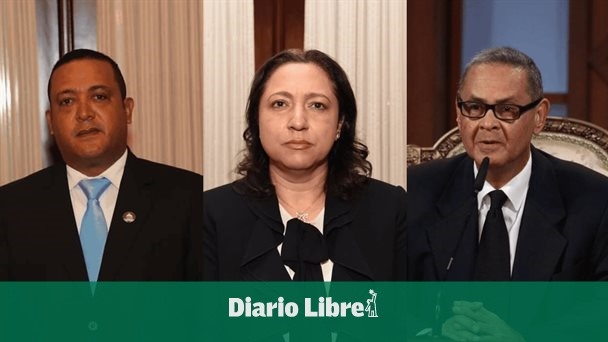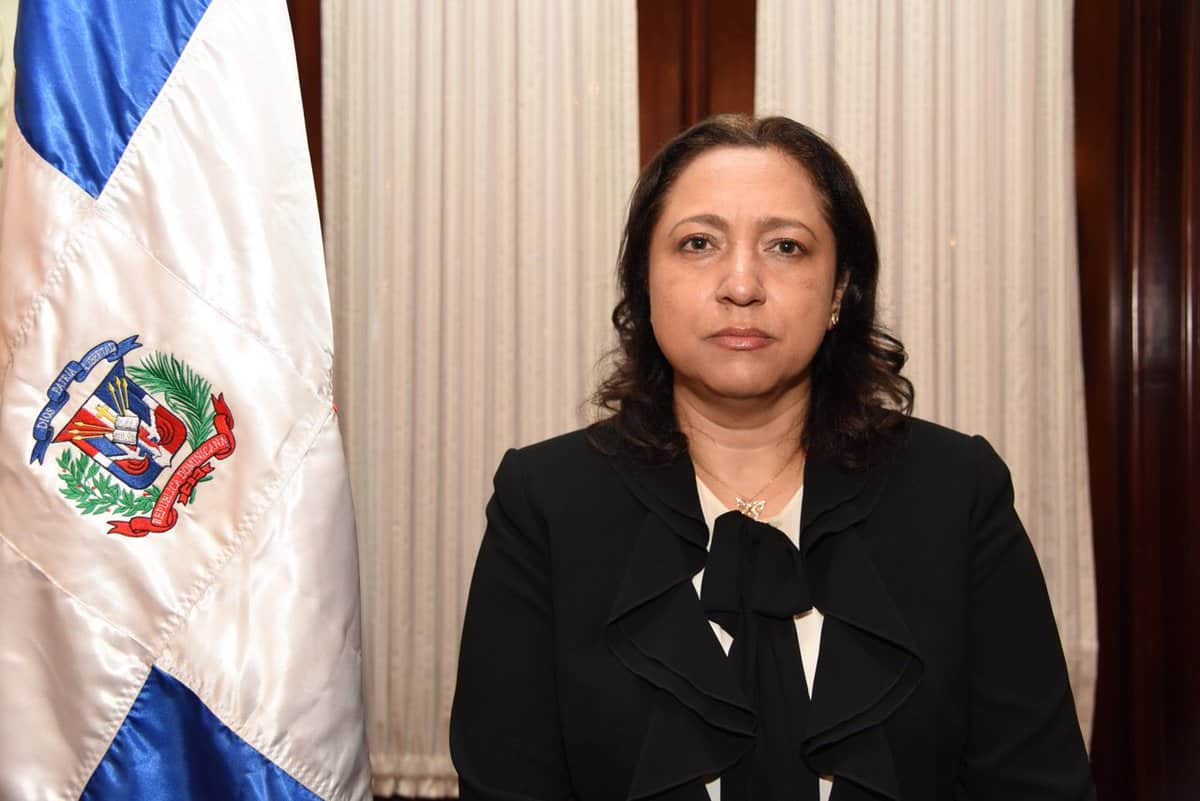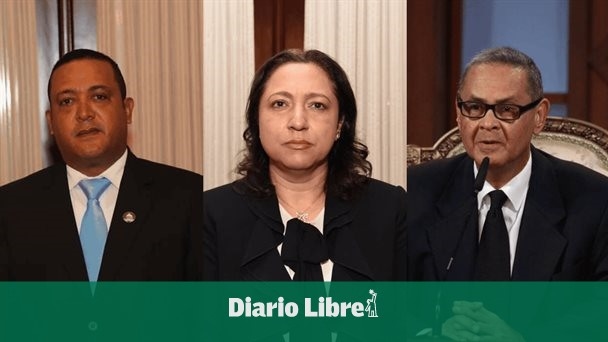Why weren't three Supreme Court justices ratified?

The National Council of the Magistracy (CNM) decided not to ratify the magistrates of the Supreme Court of Justice (SCJ) Pilar Jiménez Ortiz , Manuel Alexis Read Ortiz and Moisés Ferrer Landrón , considering that they did not meet "the required standards of suitability and performance".
After more than a month of waiting, the body published on its website the minutes of the meetings on the performance evaluation process of these judges, detailing the reasons that justified this decision.
During the deliberations, both favorable and unfavorable opinions were heard regarding the work of the judges. Furthermore, two of the three votes resulted in ties; therefore, President Luis Abinader had to use his supermajority vote to decide in those cases.
In the case of the president of the First Chamber or Civil and Commercial Chamber of the SCJ, Pilar Jiménez Ortiz , the postponement of the application of Law 2-23 on Appeal for Cassation was objected to as "inopportune" without a mechanism having been foreseen for it (such as a vacatio legis or legal vacatio, that is, the period elapsed between the publication of a rule and its entry into force).
During her interview, the judge explained that both she and the court team considered that the legal community was not prepared to apply the principle of cassation, and that some issues acted "against the court, the law and the jurisprudence."

Likewise, it was noted that, within the framework of his interview, there was a perceived insecurity regarding the quality/quantity equation surrounding the issuance of sentences in the court he presides over.
Another point addressed was that the demands for suspension of the execution of sentences in the cassation processes, the exclusive competence of Magistrate Jiménez Ortiz, did not receive, in most cases, a response within the time established by law, causing the non-observance of these and an unjustified delay in said demands.
In this vote , four votes were recorded in favor and four against ; therefore, the final decision was adopted by the President, in accordance with the provisions of the CNM law.
In the case of the president of the Third Chamber or Chamber of Land, Labor, Tax Litigation and Administrative Litigation, magistrate Read Ortiz , it was considered that the mandatory retirement age –75 years for the judges of the SCJ– was approaching.
![[object HTMLTextAreaElement]](https://resources.diariolibre.com/images/2025/10/01/dfiwwpjumaet1h-7b6fae44.jpg)
Despite the judge's contributions, it was estimated that he would reach mandatory retirement age in two years and would not remain in office for even 30% of the term. The vote resulted in two votes in favor and six against.
Moisés Ferrer LandrónWith respect to Magistrate Ferrer Landrón , the minutes state only: "the elements provided in his performance report were taken into account, with the majority of the members of the CNM concluding that his performance did not satisfy the technical aspects established in Article 2 of Regulation 2-25 for the evaluation of the performance of the judges of the Supreme Court ."
![[object HTMLTextAreaElement]](https://resources.diariolibre.com/images/2025/10/01/maxresdefault-78c046c2.jpg)
The aforementioned article states that the technical criteria are:
- Number of draft judgments prepared and submitted per month and year
- Number of draft judgments approved and rejected by the corresponding chamber
- Average time between case assignment and draft ruling submission
- Cases assigned by the chambers and not sent to the Plenary for decision
- Challenges filed and accepted against the judge, as well as the number of recusals
- Legal contributions and reasoned dissenting votes
- Participation in continuing education programs of the National School of the Judiciary
In this vote , four votes were recorded in favor and four against ; therefore, the final decision corresponded to the President, according to the provisions of the CNM law.
The CNM stated in its minutes 010-2025 that, although it did not vote in favor of the confirmation in their positions of the judges under evaluation, said decision does not constitute a sanction in the legal or disciplinary sense.
He also indicated that judges removed from their duties will retain the same treatment, precedence and distinction as magistrates in service, in accordance with the sixth paragraph of article 56 of Law 327-98 on Judicial Career.
Appointed as a judge of the SCJ in July 2017 , Pilar Jiménez Ortiz assumed the presidency of the First Chamber , specializing in civil and commercial matters, in 2019 .
Upon arrival, he found a backlog of 11,654 cases , some with hearings pending since 1992, and managed to eliminate that backlog. Between 2019 and August 2025, the Court issued 24,707 cassation decisions .
Jiménez Ortiz holds a doctorate in Law from the Autonomous University of Santo Domingo (UASD), class of 1986, with multiple postgraduate degrees and master's degrees in civil, business, administrative and constitutional justice procedural law, in universities in the Dominican Republic, Costa Rica and Spain.
- She has been a justice of the peace , a judge of first instance , president of civil chambers and a judge of the Superior Land Court .
She currently serves as the Ibero-American Commissioner for Judicial Ethics, a position from which she has issued rulings on the performance and integrity of judges in the region. She also teaches at the National School of the Judiciary and at the Pontifical Catholic University Madre y Maestra (PUCMM).
Performance of Judge Manuel Alexis Read OrtizAppointed a Supreme Court judge in 2017 , he was chosen in 2019 as president of the Third Chamber , which deals with land, labor, tax and administrative disputes.
Under his leadership, the Court resolved a large number of civil and commercial cases , including files pending since 1984. In 2019 it had 5,004 files under its jurisdiction and, in the last six years, it issued 15,808 cassation judgments .
Read Ortiz holds a doctorate in Law from the Autonomous University of Santo Domingo (UASD) and has over 30 years of experience in the judiciary. He has pursued specialized studies in Costa Rica , at the National School of the Judiciary, and at Spanish universities . He has also presided over civil courts, courts of appeal, and the Superior Land Court .
The magistrate has distinguished himself as a prolific legal scholar . Among his works are The Means of Inadmissibility in Dominican Civil Procedure (two volumes), Incapacities in Civil Law (two volumes), and On Referral and Other Topics, in addition to co-authored studies on civil jurisprudence .
Performance of Judge Moisés Ferrer LandrónAppointed to the Supreme Court in 2017 , Moisés Ferrer Landrón currently serves on the Third Chamber . He has authored more than 450 draft decisions and has distinguished himself as a special investigating judge in cases of high public sensitivity.
She has represented the Judiciary at the World Bank Land Conference (Washington, 2025) and at the Judiciary Conference (Santo Domingo, 2024).
He holds a law degree from the Autonomous University of Santo Domingo (UASD) and has completed extensive training in Spain and the Dominican Republic: master's degrees in Political and Electoral Studies ( PUCMM–University of Granada ), Administrative Law and Municipal Management ( UCLM ), and Constitutional Law and Public Law ( UCLM ).
In addition, he has completed specializations in constitutional justice , administrative law, civil procedure, criminal law and criminal procedure, among others.
The CNM confirmed that the process will continue according to the planned schedule and should conclude on November 27, while the swearing-in of the new magistrates is scheduled for the following day.
The body is in the process of selecting five judges for the Supreme Court of Justice and ten members (including full and alternate members) of the Superior Electoral Court.
TOPICS -
Diariolibre





